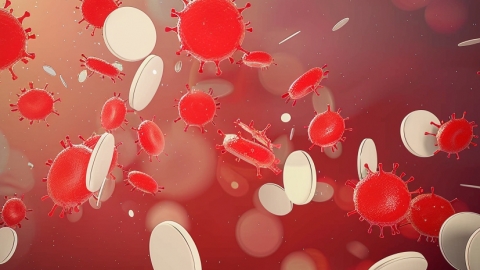Does norovirus cause a decrease in white blood cells?
Generally speaking, whether norovirus can cause a decrease in white blood cells needs to be determined based on specific circumstances. In the early stages of infection, white blood cell levels typically may not decrease; however, during the later stages of infection, a decrease may occur. If discomfort arises, timely medical attention is recommended. Detailed analysis is as follows:

In the early phase of infection, white blood cell levels usually may not decrease. When norovirus first invades the body, the immune system has not yet fully recognized the virus or initiated a strong immune response. At this time, various bodily indicators have not significantly changed due to the viral infection. White blood cells, as an important component of the immune system, remain within the normal range.
However, in the later stages of infection, white blood cell levels may decrease. As the duration of norovirus infection increases, the immune system continuously fights the virus, triggering a series of stress responses. The inflammatory response caused by norovirus infection may affect the hematopoietic microenvironment of the bone marrow, inhibiting the production of white blood cells. Meanwhile, during the process of clearing the virus, the immune system consumes a large number of white blood cells, causing the rate of white blood cell consumption to exceed the rate of production, thereby leading to a decrease in white blood cell count.
In daily life, maintaining good personal hygiene habits, such as frequent handwashing and avoiding close contact with infected individuals, can effectively reduce the risk of transmission.








